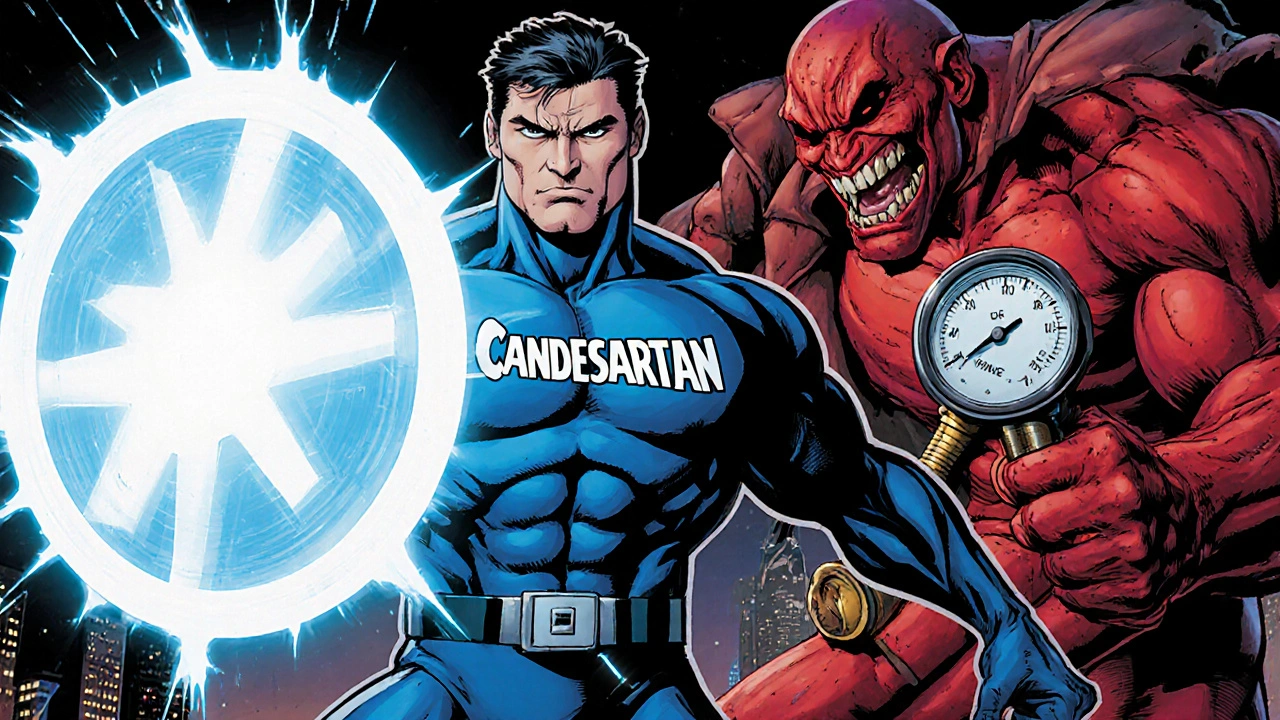Blood Pressure Medication: Types, Uses, and What to Know
When dealing with blood pressure medication, drugs prescribed to lower high blood pressure and protect the heart and vessels. Also known as antihypertensives, it plays a crucial role in managing hypertension. The category includes ACE inhibitors, agents that block the enzyme that creates angiotensin II, a powerful vessel‑constrictor, beta blockers, medications that slow heart rate and reduce cardiac output, and calcium channel blockers, drugs that relax the muscle of blood‑vessel walls. Understanding these sub‑groups helps you pick the right option and avoid surprises.
Why Blood Pressure Medication Matters
High blood pressure—a silent, steady force—can damage arteries, kidneys, and the brain over years. Blood pressure medication stops that damage by lowering the force against artery walls. The choice of drug depends on age, other health issues, and how your body reacts. For example, ACE inhibitors work well for people with kidney concerns, while beta blockers are often chosen after a heart attack. The link between hypertension and heart disease means the right medicine can add years to your life, and the wrong one can cause fatigue, dizziness, or a cough.
Another piece of the puzzle is monitoring. Regular blood‑pressure checks let you and your doctor see if a medication is doing its job. Many patients use home cuffs, smartphone apps, or pharmacy kiosks. When a reading stays under the target range (usually 120/80 mmHg), you know the drug is effective. If it spikes, the doctor may adjust the dose or try a different class. This feedback loop—medicine plus monitoring—creates a safe, personalized treatment plan.
Side effects are real, but they vary by class. ACE inhibitors can cause a dry cough, while calcium channel blockers may lead to swollen ankles. Beta blockers sometimes cause cold hands or a slower heart rate. Knowing the typical profile helps you weigh pros and cons before starting. Most side effects fade after a few weeks, and doctors can often switch you to another agent if they persist.
Beyond pills, lifestyle changes amplify the benefits of any medication. Reducing sodium, exercising regularly, and losing excess weight can lower the dose you need. Think of lifestyle as a partner, not a backup. When you combine a low‑salt diet with an ACE inhibitor, you may see bigger drops in pressure than either approach alone. That synergy is why many clinicians stress diet and activity while prescribing drugs.
Cost is another factor that shapes decisions. Generic versions of most antihypertensives are cheap, but brand‑name options can be pricey. Online pharmacies in Australia, for instance, often list generic warfarin, lisinopril, or amlodipine at lower prices than brick‑and‑mortar stores. If you’re hunting for a bargain, compare reputable sites, check pharmacy licenses, and read reviews. A safe purchase plan includes a valid prescription, a clear return policy, and secure payment methods.
Special populations need extra care. Pregnant women, seniors, and people with diabetes may require adjusted doses or different drug classes. For example, ACE inhibitors are usually avoided during pregnancy because they can affect the fetus. Seniors often start with a low dose of a diuretic to avoid dehydration. Understanding these nuances prevents complications and keeps treatment effective across life stages.
Finally, remember that no single drug works for everyone. Some patients need a combination—say, an ACE inhibitor plus a thiazide diuretic—to hit target numbers. Combination pills simplify dosing but may increase the risk of side effects. Discuss the trade‑offs with your doctor, and keep a list of all meds you take, including over‑the‑counter supplements that can raise blood pressure, like certain NSAIDs.
Below you’ll find a hand‑picked collection of articles that dive deeper into specific drugs, comparison guides, and safe‑buying tips. Whether you’re curious about the best generic option, want to understand how a new class works, or need advice on picking a reputable online pharmacy, the posts ahead cover the full spectrum of blood pressure medication topics.

Candesartan (Atacand) vs Other Blood Pressure Drugs - Full Comparison
A detailed 2025 guide comparing Atacand (candesartan) with other blood‑pressure drugs, covering effectiveness, side‑effects, cost and when each option is best.
read more
Rumalaya vs Other Blood Pressure Meds: A Detailed Comparison
A clear, human‑focused comparison of Rumalaya with leading blood‑pressure drugs, covering effectiveness, side effects, cost, and practical tips for choosing or switching.
read more
Norvasc (Amlodipine) vs. Common Blood Pressure Alternatives - Full Comparison
A detailed side‑by‑side look at Norvasc (amlodipine) and its most popular alternatives, covering efficacy, dosing, side effects, and drug interactions in plain language.
read more




